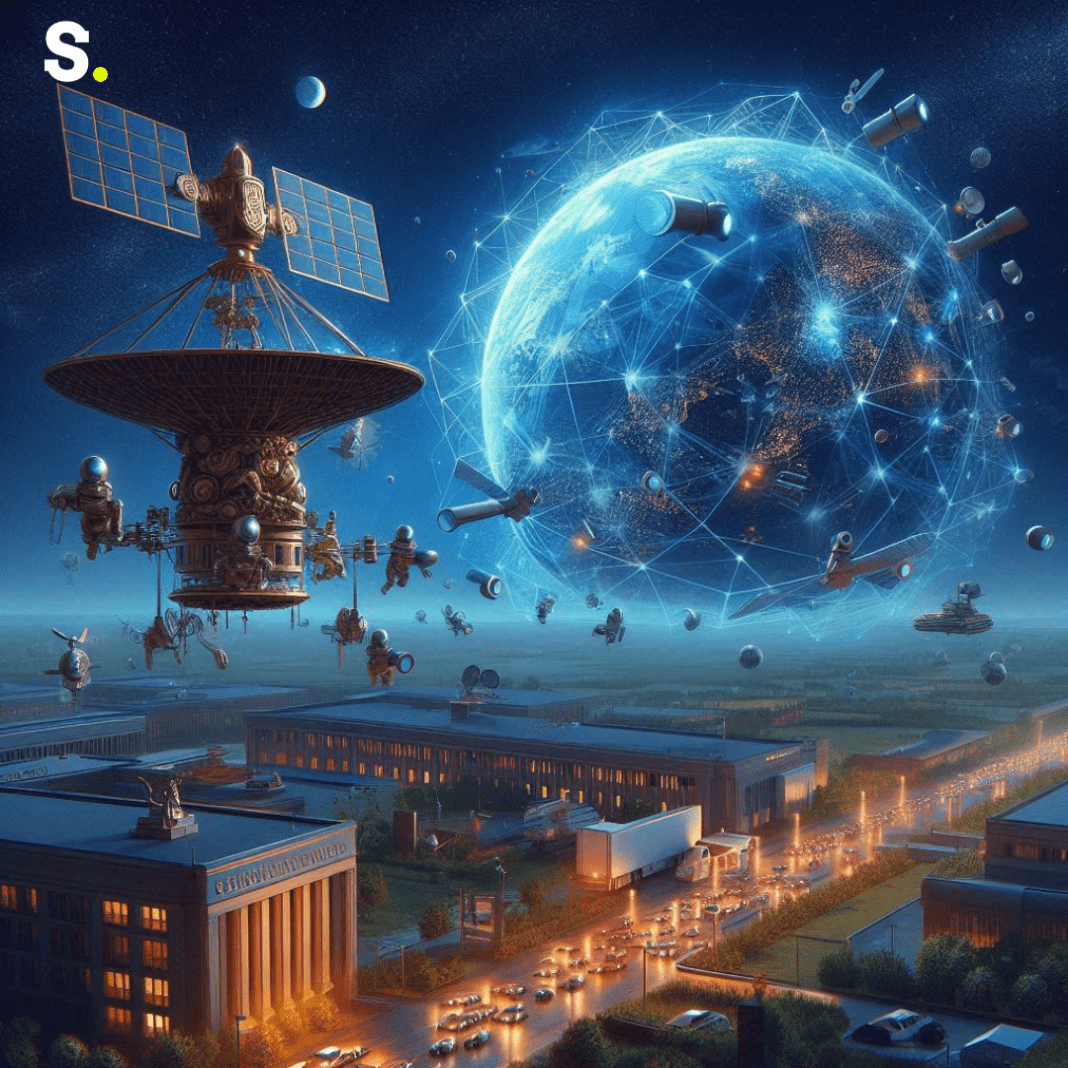As nations like India and others reconsider their domestic space regulations and the framework of international space law, several critical factors warrant attention. These considerations include the implications of satellite surveillance, the growing influence of private companies in the space sector, the challenge of space debris, the risks posed by anti-satellite weapons, and the increasing issue of light pollution from satellites.
The Dark Side of Satellite Surveillance
Military satellites have advanced capabilities for conducting various forms of surveillance, including photographic reconnaissance, electronic intelligence gathering, nuclear explosion detection, and monitoring strategic missile launches. They can also intercept communication signals from cell towers. While these technologies play vital roles in national security, their implications for privacy are significant. The covert nature of satellite operations raises concerns about the extent of data collection and the potential for misuse, emphasizing the need for robust space laws to govern these activities.
With 239 military satellites, the United States is currently the world leader, followed by China with 140 and Russia with 105; however, the exact number of spy satellites is still unknown. Notably, the U.S. has entered a $1.8 billion contract with SpaceX to develop a network of surveillance satellites, while India plans to launch 50 intelligence-gathering satellites by 2024, as reported by the *Times of India*. This situation raises pressing questions about the ethical and legal frameworks governing such activities, highlighting the necessity for comprehensive space laws that address surveillance and privacy concerns.
The emergence of private companies like SpaceX, Blue Origin, and Virgin Galactic has transformed the landscape of space exploration and satellite communication. Companies such as SpaceX are not only key players in the commercial space race but also engage in significant governmental contracts. A notable instance is SpaceX’s provision of free internet services to Ukraine via its Starlink network during the Russia-Ukraine conflict in 2022. However, concerns arose when Elon Musk reportedly restricted Starlink access for Ukrainian forces after discussions with Russian officials, potentially affecting military operations.
This scenario underscores the need for robust regulatory frameworks, including updated space laws, that address national security concerns, humanitarian needs, and the autonomy of private enterprises. As private companies increasingly assume roles traditionally held by governments, the question of their loyalties and responsibilities becomes more critical, highlighting the necessity for clear space laws that can effectively govern these new dynamics.
The Space Junk Dilemma
Space debris, encompassing defunct satellites and fragments from past missions, poses significant risks to operational spacecraft and satellites. With estimates suggesting over 100 million pieces of debris orbiting Earth, the potential for collisions is alarming. Objects traveling at speeds exceeding 37,000 km per hour can cause catastrophic damage to operational satellites and the International Space Station (ISS).
Moreover, debris re-entering Earth’s atmosphere can lead to pollution and health risks from toxic chemicals. The phenomenon known as “Kessler Syndrome,” proposed by former NASA scientist Donald Kessler, suggests that as the number of satellites increases, so does the likelihood of collisions, generating even more debris in a vicious cycle. In order to guarantee the long-term viability of space operations, space debris must be addressed through comprehensive space laws that regulate satellite launches and promote responsible behavior in space.
These updated space laws are essential for establishing guidelines on debris mitigation and ensuring that nations and private entities take accountability for the debris they generate, thereby safeguarding future space endeavors.
The Threat of Anti-Satellite Weapons
Anti-satellite (ASAT) weapons, designed to destroy or incapacitate satellites, pose a growing threat to space security. Nations including the U.S., Russia, India, and China have tested these capabilities, raising concerns about the potential for disrupting critical services such as GPS and communication. Even during testing phases, the destruction of satellites results in additional space debris, compounding the existing challenges.
In 2022, several countries, including the U.S., Canada, New Zealand, Japan, and Germany, committed to halting destructive direct-ascent ASAT tests. In 2023, Australia and the European Union joined this commitment. While these measures may reduce the generation of space debris, geopolitical tensions surrounding ASAT capabilities remain unresolved.
Light Pollution in the Night Sky
The proliferation of satellites in low Earth orbit contributes to light pollution, significantly impacting astronomical observations. Satellites reflecting sunlight can create bright streaks across telescope images, complicating the detection of celestial phenomena. This challenge is particularly acute for telescopes that require long exposure times to capture faint objects, as brighter skies can hinder the observation of critical astronomical events.
As satellite launches increase, the balance between advancing space exploration and preserving the integrity of our night sky becomes increasingly precarious.
The interplay between emerging technologies, national security, private enterprise, and environmental considerations in space necessitates a comprehensive approach to regulation. As countries update their space laws and international treaties, addressing these key factors will be essential for fostering a sustainable and secure future in outer space.




